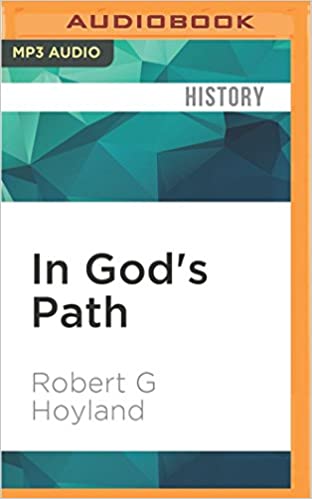Robert G Hoyland – In God’s Path Audiobook
Robert G Hoyland – In God’s Path Audiobook (The Arab Conquests and the Creation of an Islamic Empire)

I observed this book to be extremely fascinating, educational and elegantly composed. It covers the Arab Conquest of the Sasanian Persian Empire and part of the Byzantine Empire, covering the seventh and eighth hundreds of years AD. It covers :
· The military parts of the attack and a portion of the central fights, with an accentuation on the possibility that the success was not momentary, but instead took decades. Robert G Hoyland – In God’s Path Audiobook Free.
· The Arab intrusion is depicted as not being propelled by religious variables, but rather more for loot than for changing over individuals. There was no underlying force for changing over the vanquished individuals; in reality the inverse was the situation, with an imperviousness to transformation.
This elegantly composed and to a great degree astute book merits a wide readership. It puts the Arab successes in a recorded setting second to none and gives a reasonable and succinct depiction of the people groups and occasions that happened. It fills a data void with respect to the Late Antique world as observed from the Arab side. The victories and aftermaths are appeared in human terms as opposed to from an entirely religious perspective. Robert G Hoyland – In God’s Path Audiobook Online.
The part of religion is never rejected or made light of however is held in a point of view so the occasions can be all the more effortlessly comprehended in human terms. This is particularly satisfying for those of us that are knowledgeable in Byzantine and Persian history.Those tumultuous circumstances would now be able to be all the more promptly saw and comprehended all alone terms. There is something to be said for an adjusted multi-point of view introduction and ‘In God’s Path’ does quite recently that-commendably so. The occasions may have happened quite a while prior yet the repercussions are as later as the present features. This ought to be an ‘absolute necessity read’ book particularly for Westerners that have a poor comprehension of the histories of South West Asia when all is said in done and the Arabs specifically.
Albeit generally short, this book gives an amazing short history of the early extension of the Arab/Muslim Empire. The creator makes various profitable bits of knowledge into the development of the Umayyad and Abassid domains.
His utilization of accessible sources is commendable, and his decisions stream sensibly from his sourcing. This is the kind of work that can make a considerable measure of contention among masters, yet gives an a great deal more nuanced picture of early Islamic history. Exceptionally prescribed.